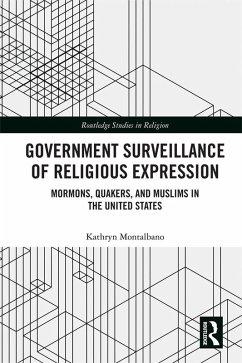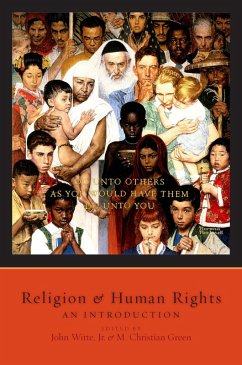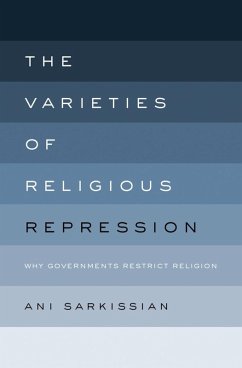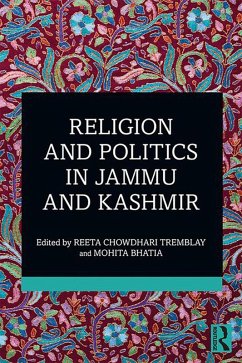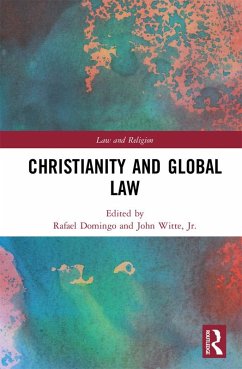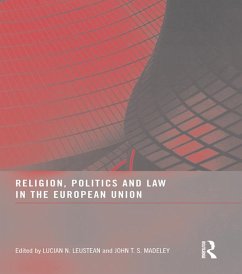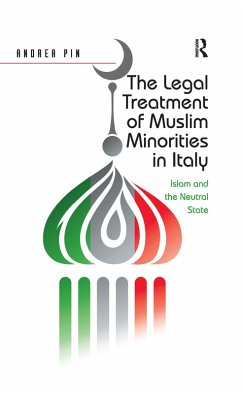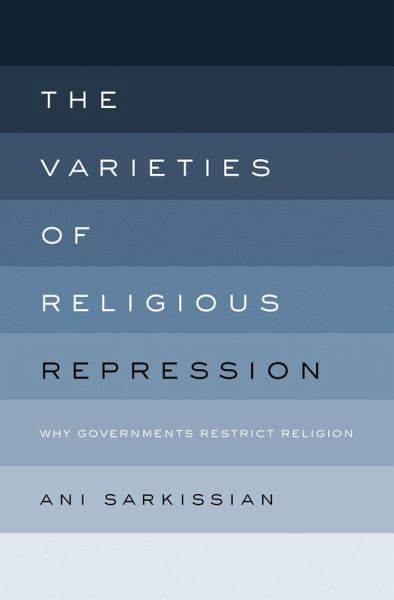
The Varieties of Religious Repression (eBook, PDF)
Why Governments Restrict Religion

PAYBACK Punkte
9 °P sammeln!
Religious repression--the non-violent suppression of civil and political rights--is a growing and global phenomenon. Though most often practiced in authoritarian countries, levels of religious repression nevertheless vary across a range of non-democratic regimes, including illiberal democracies and competitive authoritarian states. In The Varieties of Religious Repression, Ani Sarkissian argues that seemingly benign regulations and restrictions on religion are tools that non-democratic leaders use to repress independent civic activity, effectively maintaining their hold on power. Sarkissian ex...
Religious repression--the non-violent suppression of civil and political rights--is a growing and global phenomenon. Though most often practiced in authoritarian countries, levels of religious repression nevertheless vary across a range of non-democratic regimes, including illiberal democracies and competitive authoritarian states. In The Varieties of Religious Repression, Ani Sarkissian argues that seemingly benign regulations and restrictions on religion are tools that non-democratic leaders use to repress independent civic activity, effectively maintaining their hold on power. Sarkissian examines the interaction of political competition and the structure of religious divisions in society, presenting a theory of why religious repression varies across non-democratic regimes. She also offers a new way of understanding the commonalties and differences of non-democratic regimes by focusing on the targets of religious repression. Drawing on quantitative data from more than one hundred authoritarian states, as well as case studies of sixteen countries from around the world, Sarkissian explores the varieties of repression that states impose on religious expression, association, and political activities, describing the obstacles these actions present for democratization, pluralism, and the development of an independent civil society.
Dieser Download kann aus rechtlichen Gründen nur mit Rechnungsadresse in A, B, BG, CY, CZ, D, DK, EW, E, FIN, F, GR, HR, H, IRL, I, LT, L, LR, M, NL, PL, P, R, S, SLO, SK ausgeliefert werden.





